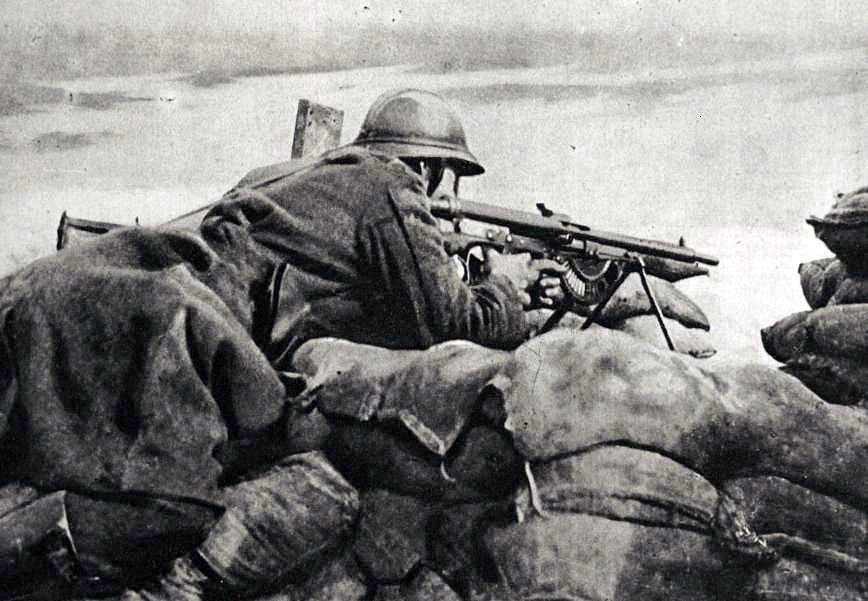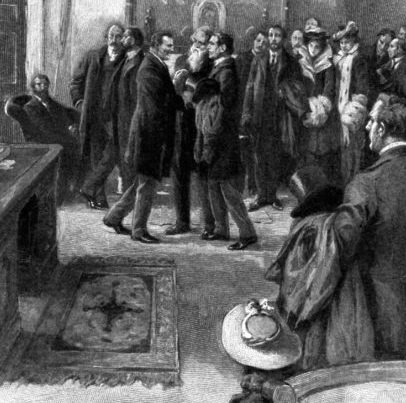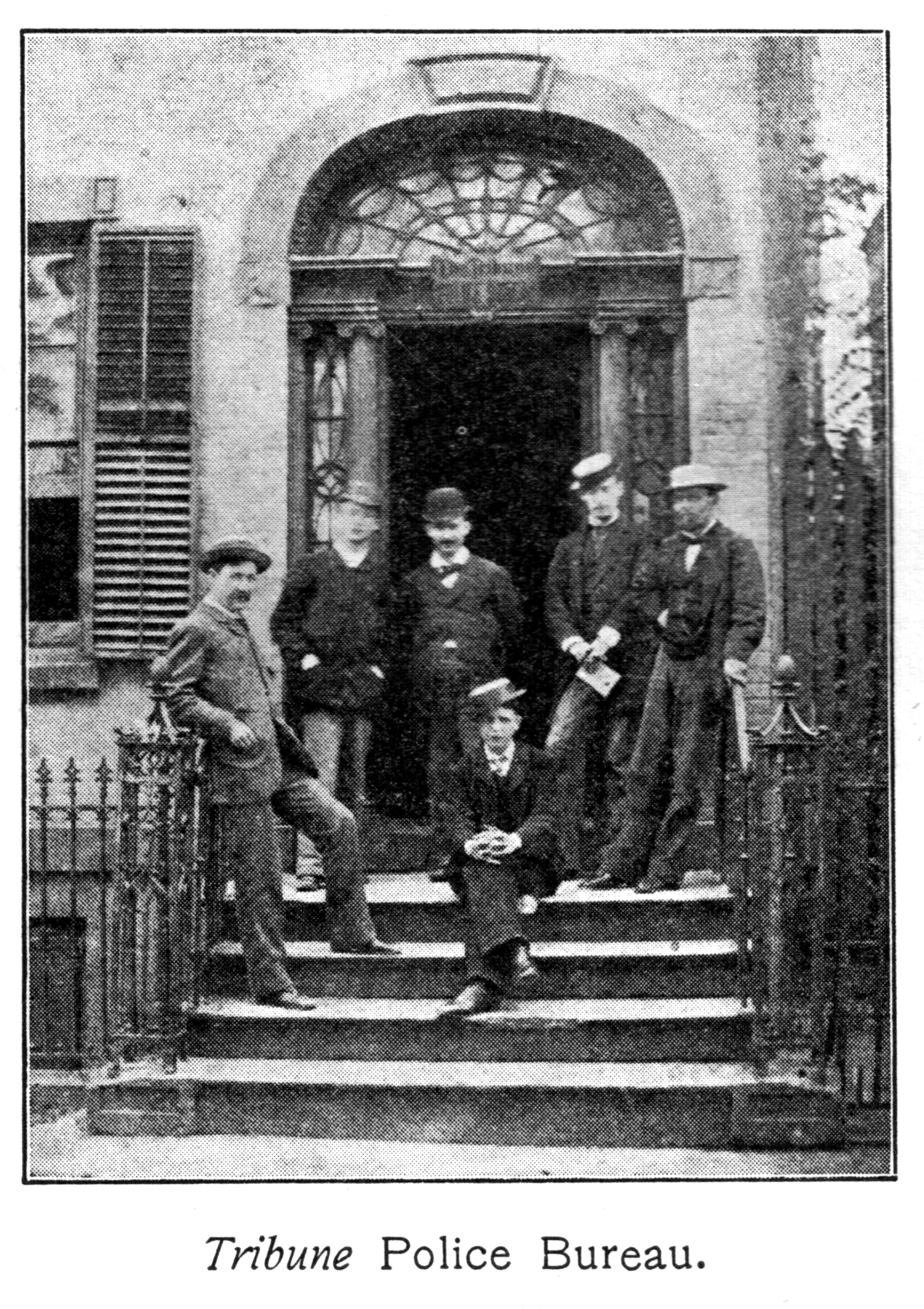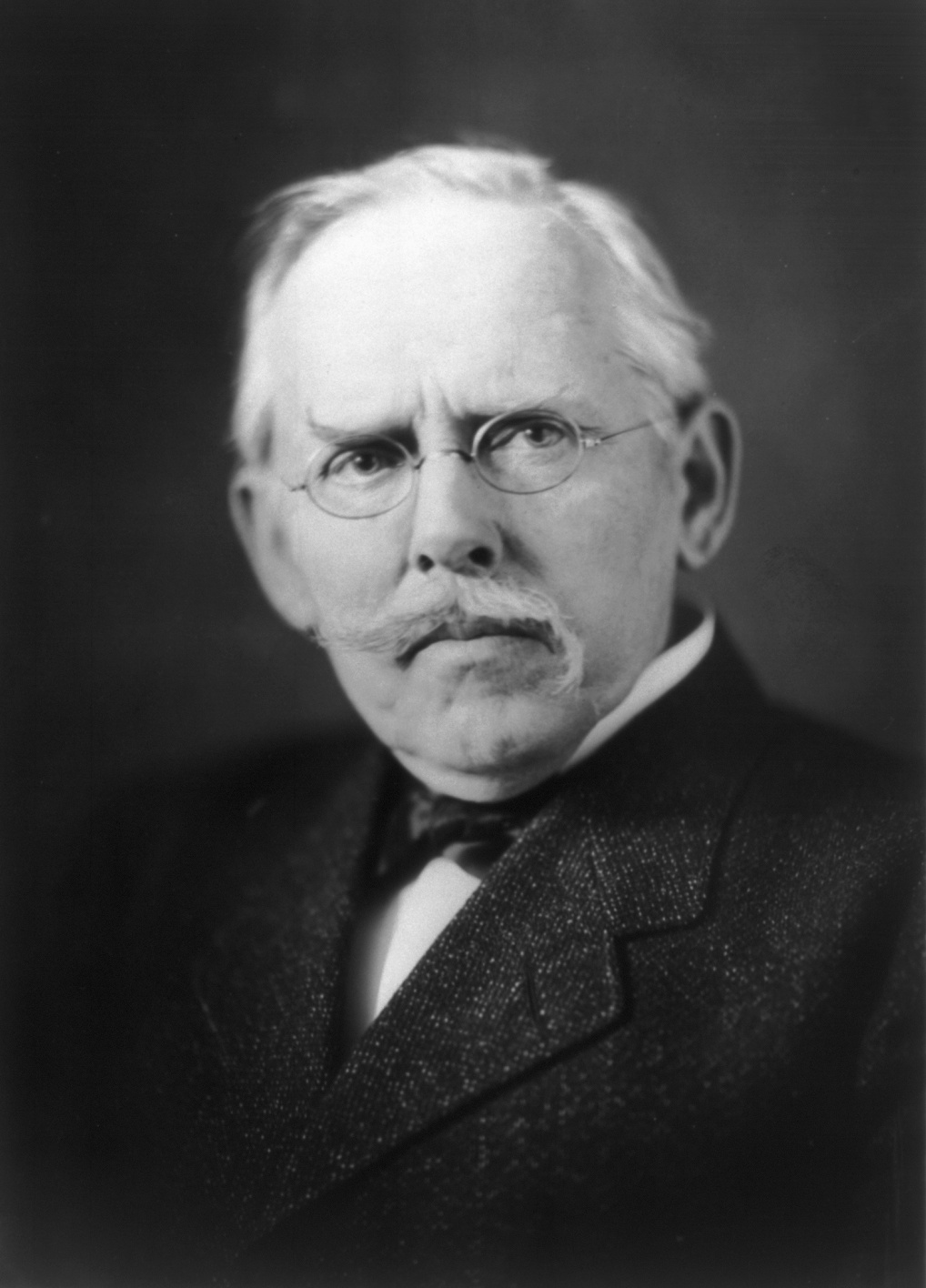
A Deserted Command
A Deserted Command
• The force I saw was not strong enough to hold the ground over which it was sprinkled. A squad was expected to perform the duties of a company.
A Deserted Command
By Richard Harding Davis
The New York Times, January 23, 1916
An Episode on the Serbian Frontier, Where Two Boys Under Twenty Held Their Own
Saloniki, Greece. Dec. 10.
ON the day the retreat began from Krivolak, General Sarrail, commanding the Allies in Serbia, gave the correspondents permission to visit the French and English front. The French advanced position, and a large amount of ammunition, 600 shells to each gun, were then at Krivolak, and the English base at Doiran. We left the train at Doiran, after a luncheon en route. The Italian correspondent had been detailed as chief of commissariat. But as his idea of campaign rations was hard boiled eggs and the straw-covered flasks of his native Chianti, he was removed from his command. Fortunately, after that, we were the guests of the French Army, and the horrors of war, for us, were at an end.
Our French “guide” had not informed the English a “mission militaire” was descending upon them, and in consequence at Doiran there were no conveyances to meet us. But a charming English Captain commandeered for us a vast motor track. Stretched above it were ribs to support a canvas top, and by clinging to these as at home on the elevated we managed to avoid being bumped out into the road. The English Captain, who seemed to have nothing else on his hands, volunteered to act as our escort and on a splendid hunter galloped ahead of and at the side of the lorry, and, much like a conductor on a sightseeing car, pointed out the objects of interest. When not explaining, he was absent-mindedly jumping his horse over swollen streams, ravines, and fallen walls. We found him much more interesting to watch than the scenery.
The scenery was desolate and bleak. It consisted of hills that opened into other hills, from the summit of which more hills stretched to a horizon entirely of mountains. They did not form ridges, but, like men in a crowd, shouldered into one another. They were of a soft rock and covered with snow, above which to the height of your waist rose scrub pine trees and bushes of holly. The rain and snow that ran down their slopes had turned the land into a sea of mud and had swamped the stone roads. In walking, for each step you took forward you skidded and slid several yards back. If you had an hour to spare you had time for a ten minutes’ walk.
In our motor truck we circled Lake Dairan, and a mile from the station came to a stone obelisk. When we passed it our guide on horseback shouted to us that we had crossed the boundary from Greece and were now in Serbia. The lake is five miles wide and landlocked, and the road kept close to the water’s edge. It led us through little mud villages, with houses of mud and wattle, and some of stone, with tiled roots and rafters and beams showing through the cement The second story projected like those of the Spanish blockhouses in Cuba and the log forts from which, in the days when there were no hyphenated Americans, our forefathers fought the Indians.
Except for some fishermen, the Serbians had abandoned these villages, and they were occupied by English army service men and infantry. The “front,” which was hidden away among the jumble of hills, seemed, when we reached it, to consist entirely of artillery. All along the road the Tommies were waging a hopeless war against the mud, shoveling it off the stone road to keep the many motor trucks from skidding over a precipice, or against the cold making shelters of it, or washing it out of their uniforms and off their persons. Shivering from ears to heels and with teeth rattling, but undaunted, they stood stripped to the waist, scrubbing their sun-tanned chests and shoulders (for they had come from the Dardanelles) with ice water. It was a spectacle that inspired confidence. When a man is so keen after water to wash in that he will kick the top off a frozen lake to get it a little thing like a barbed-wire entanglement will not halt him.
The cold of, those hills was like no cold I ever felt. Officers who had hunted in Northern Russia, in the Himalayas, in Alaska, assured us that never had they so suffered. The men we passed, who were in the ambulances, were down either with pneumonia or frostbite. Many had lost toes and fingers. And it was not because they were not warmly clad. Last winter in France had taught the War Office how to dress the part; but nothing had prepared them for the cold of the Balkans. And to add to their distress, for it was all of that, there was no firewood. The hills were bare of trees, and such cold as .they endured could not be fought with green twigs. It was not the brisk, invigorating cold that invites you out of doors. It had no cheery, healthful appeal to skates, toboggans and the jangling bells of a cutter. It was the damp, clammy, penetrating cold of a dungeon, of an unventilated ice chest, of a morgue. Your clothes did not warm you, the heat of your body had to warm your clothes; and warm, also, all of the surrounding hills.
Between the road and the margin of the lake were bamboo reeds as tall as lances and at the edge of these were gathered myriads of ducks. The fishermen were engaged in bombarding the ducks with rocks. They went about in a methodical fashion. All around the lake, concealed in the reeds and lifted a few feet above the water, they had raised huts on piles. These huts had a ledge or balcony in front and looked like overgrown bird houses on stilts. One fisherman waited in a boat to pick up the dead ducks, and the other hurled stones from a sling. It was the same kind of a sling as the one with which David slew Goliath. In Athens I saw small boys using it to throw stones at an electric light pole. The one the fisherman used was about eight feet long. To get the momentum he whirled it swiftly above his head as a cowboy swings a lariat and then let one end fly loose, and the stone, escaping, smashed into the mass of ducks. If it stunned or killed a duck, the human water spaniel in the boat would row out and retrieve it. To duck hunters at home the sport would chiefly recommend itself through the cheapness of the ammunition.
On the road we met relays of water carts and wagons that had been up the hills with food for the gunners at the front, and engineers were at work repairing the stone bridges or digging detours to avoid those that had disappeared. They were built to support no greater burden than a flock of sheep, an ox-cart or what a donkey can carry on his back, and the assault of the British motor -trucks and French six-inch guns had driven them deep into the mud.
After ten miles we came to what a staff officer would call an “advanced base,” but which was locally designated the “Dump.” At the side of the road, much of it uncovered to the snow, were stores of ammunition, “bully beef” and barbed wire. The camp bore all the signs of a temporary halting place. It was just what the Tommies called it, a dump. We had not been told then that the Allies were withdrawing, but one did not have to be a military expert to see that there was excellent reason why they should. They were so few. Whatever the force was against them, the force I saw was not strong enough to hold the ground, not that it covered, but over which it was sprinkled. There were outposts without supports, supports without reserves. A squad was expected to perform’ the duties of a company. Where a brigade was needed, there was less than a battalion. Against the white masses of the mountains and the desolate landscape without trees, houses, huts, without any sign of human habitation, the scattered groups of khaki only accented the bleak loneliness.
At the Damp we had exchanged for the impromptu motor truck automobiles of the French staff, and as Jimmie Hare and I were alone in one of them, we could stop where we liked. So we halted where an English battery was going into action. It had dug itself into the side of a hill and covered itself with snow and pine branches. Somewhere on one of the neighboring hills the “spotter” was telephoning the range. The gunners could not see at what they were firing. They could see only the high hill of rock and snow at the base of which-they stood shoulder high in their mud cellars. Ten yards to the rear of them was what looked like a newly-made grave reverently covered with pine boughs. Through these a rat-faced young man, with the receivers of a telephone clamped to his ears, pushed his head.
“Eight degrees to the left, Sir,” he barked, “four thousand yards.”
The men behind the guns were extremely young, but like most artillerymen, alert, sinewy, springing to their appointed tasks with swift, catlike certainty. The sight of the two strangers seemed to surprise them as much as the man in the grave bad startled us. There were two boy officers in command, one certainly not yet eighteen, his superior officer still under twenty.
“I suppose you’re all right,” said the younger one. “You couldn’t have got this far if you weren’t all right.”
He tried to scowl upon us, but he was not successful. He was too lonely, too honestly glad to see anyone from beyond the mountains that hemmed him in. They stretched on either side of him to vast distances, massed, barriers of white against a gray, somber sky; in front of him, to be exact, just four thousand yards in front of him, were Bulgarians he had never seen, but who were always “moving him on”’ and behind him lay a muddy road-that led to a rail-head, that led to transports, that led to France, to the Channel and England. It was a long, long way to England. I felt like taking one of the boy officers under each, arm and smuggling him safely home to his mother.
“You don’t seem to have any supports,” I ventured.
The child gazed around him. It was growing dark and gloomier, and the hollows of the white hills were filled with shadows. His men were listening, so he said bravely, with a vague sweep of the hand at the encircling darkness. “Oh, they’re about—somewhere. You might call this,” he added’ with pride, “an independent-command.”
You well might.
“Report when ready,” chanted his superior officer, aged-nineteen.
He reported, and then the guns spoke, making a-great flash in the twilight.
In spite of the light, Jimmie Hare was trying to make a photograph of the guns.
“Take it on the recoil,” advised the child officer: “It’s sure to stick. It always does stick.”
The men laughed, not slavishly, because the officer had made a joke, but as companions in trouble, and because when you are abandoned on a mountain side with a lame gun that jams, you must not take it lying down, but make a joke of it.
The French chauffeur was pumping his horn-for us to return, and I went shamefacedly, as must the robbers who deserted the babes in the wood. In farewell I offered the boy officer the best cigars for sale in Greece, which is the worst thing one can say of any cigar. I apologized for them, but explained he must take them because they were called the “King of-England.”
“I would take them,” said the infant, “if they were called the German Emperor.”
At the door of the car we turned and waved, and the two infanta waved back. I felt I had meanly deserted them, that for his life the mother of each could hold me to account.
But, as we drove away from the cellars of mud, the gun that stuck, and the “independent command,” I could see in the twilight the flashes of the guns, and two lonely specks of light.
They were the King of England cigars burning bravely.



